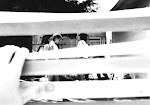 Everybody needs a hero(ine) but why, as a child, mine should have been Anne Boleyn, is something I’ve never quite sorted out. I assume the original interest came from a long-forgotten historical novel. Certainly it was fed by them, and by “The Six Wives of Henry VIII” on Masterpiece Theatre. And yet, I’m not entirely convinced by this explanation, mainly because the Anne Boleyn that so heavily occupied my thoughts when I was ten years old was not the ready-made villainess that generally crops up in fictional accounts of the Tudors. Historical novelists love to go to town with Anne, loading her with every negative feminine characteristic in the book: shallowness, immorality, deviousness, bigotry, cruelty, and so on, at least until the end of the book, when they generally admit she was innocent of adultery and treason and write a scene in which she goes to her death on the scaffold bravely. My Anne Boleyn – the Anne Boleyn I created in my head – was none of these things. She was misunderstood. And I think that this idea – that she struggled, and that I had to struggle, to clear her name – was the crux of the matter for me. No doubt some of her wildness appealed to me and no doubt I saw her as someone immensely powerful, someone who could be my defender. But I could also defend her – and I frequently did, mostly to people who couldn’t have cared less. (Although I believe my classmates did enjoy hearing that after your head was cut off your body could continue to move.)
Everybody needs a hero(ine) but why, as a child, mine should have been Anne Boleyn, is something I’ve never quite sorted out. I assume the original interest came from a long-forgotten historical novel. Certainly it was fed by them, and by “The Six Wives of Henry VIII” on Masterpiece Theatre. And yet, I’m not entirely convinced by this explanation, mainly because the Anne Boleyn that so heavily occupied my thoughts when I was ten years old was not the ready-made villainess that generally crops up in fictional accounts of the Tudors. Historical novelists love to go to town with Anne, loading her with every negative feminine characteristic in the book: shallowness, immorality, deviousness, bigotry, cruelty, and so on, at least until the end of the book, when they generally admit she was innocent of adultery and treason and write a scene in which she goes to her death on the scaffold bravely. My Anne Boleyn – the Anne Boleyn I created in my head – was none of these things. She was misunderstood. And I think that this idea – that she struggled, and that I had to struggle, to clear her name – was the crux of the matter for me. No doubt some of her wildness appealed to me and no doubt I saw her as someone immensely powerful, someone who could be my defender. But I could also defend her – and I frequently did, mostly to people who couldn’t have cared less. (Although I believe my classmates did enjoy hearing that after your head was cut off your body could continue to move.)I’ve long since passed beyond being interested in Anne Boleyn and yet I still shy away from any book that seems to be “against” her. (Take that, Alison Weir! Take that, Philippa Gregory!) And I still want to lecture people on what an unusual figure she was for a 16th century female and how the main contemporary record of her life was written by the Spanish ambassador, so naturally it’s biased, and… And sometimes, looking back on the whole thing, I’m kind of intrigued that somehow out of the welter of historical women I picked such a weird one.
Anyone else out there have an unusual childhood hero?











